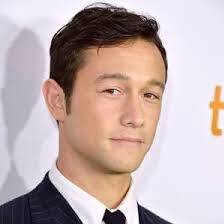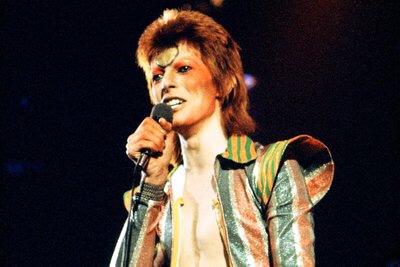Violence has been a serious issue for a long time. Young teens and adults have used violence as propaganda, to establish the ranks in a class system invented to make everyone feel bad about themselves. Masculinity is an expectation, it’s distancing yourself from the innate According to society men have about three options to prove their manhood: fighting, sex and stoicism. Not only that, but these concepts are constantly around them, they are in movies, in sports, in school and in their personal lives. Masculinity is one of these most restrictive concepts in society. These restrictions create a weak environment for boys to grow up. This weak environment leads to an overload of undealt emotions that lead to self destruction and potentially violent outburst on the rest of society.
By insinuating fighting, you insinuate violence. People like Brian Burke and Don Cherry believe that fighting is part of the fabric of hockey. And as some put “hockey with fighting? We might as well be figure skating”. It’s so funny to think that the only excuse people have for allowing fighting in hockey is that it’s been that way forever, is just so irritating. And don’t even get me started on, Don Cherry saying if we don’t allow fighting, anger is going to manifest itself in different ways, how about letting these men know that in these cases their actions don’t speak louder than words and that maybe the feelings of anger they sense are really just feelings of stress and frustration, and tell them that those emotions are valid and permissible since they are human. Not only that, children are great imitators, they learn through observation, so saying that these fights do nothing is a total lie. Even the players know what they’re doing, and even if they would prefer not to do it, they still do. It’s the name of the game. But if the death of one person is not enough to draw a line, then we are in way worse condition than I thought. What does living by this ‘Code’ do for these athletes? What happens if they choose not to fight? Do they lose their position or spot on the team? Do they automatically become a target from the opposing teams? Like what happens? Why do they even allow these fights to happen in the first place? And is skating just a sideshow then? Is hockey even about skill? Now, I understand that many other sports like boxing and karate all have fighting at their core but the principle is different. There is no malicious intent in boxing. These fighters do not fight people, they fight opponents. There are probably more regulations for boxing then there are for hockey at this point. Now I like the idea of players protecting their most valuable player/friend but I believe that this violence is organized. These players know that in order to play the game, you need to play by the rules and if the rules say fight is the way to go, then they’re going to do just that. Now fighting may be entertaining but it does nothing for the actual teams. In my opinion, it actually decreases my appreciation for sports in general. Now my bias shines through as I’ve never played a game of hockey in my life but I think I know enough about integrity to understand the contradiction in saying that violence in one form makes it less likely that violence will happen under another.
The rise of physical and sexual assault in school is crazy, about 1 in 3 women and 1 in 6 men are affected by sexual violence. Only a fraction of women speak up, even much less for men and when survivors do speak up they forever live a life of shame and fear. Which is not made easier by the fact that most of the time the people responsible walk away scotch free. Violence in schools often goes undocumented out fear that it may smear the school’s reputation. Strange, how an institution responsible for ensuring the safety and wellness of children is doing the exact opposite. In the CBC Gem documentary, all of the kids felt as though they were pushed aside and almost told to toughen up. As if getting the crap beaten out of you or getting raped is something one just ‘gets over’. The schools do nothing, which is a huge slap in the face for victims of violence because it says “we have better things to do then take care of your self inflicted issues that you must have provoked because no student from our school would do such a thing”. Just like in hockey, they allow the violence to prevail. School authorities use their energy hiding these issues rather than solving them, which makes these issues larger as now people are getting away with basically anything. It’s kind of comforting knowing that you’re not the only one being swept under the rug but then again it’s super disappointing knowing that resources are being missed used in the education system. It’s almost like they tend more to the perpetrator’s needs than those of the victim. It’s like, imagine getting shot in the knee and only given a bandaid. There doing the bare minimum, at most.
Men get too caught up with being a ‘man’ and they forget that they are human beings. The patriarchy has created a list of criteria for what a man is supposed to be and if you don’t meet those criterias, well guess what? You’re not a man, according to this very old, closed minded testimony made by a bunch of old, white, blind men who neglected their own identity in order to be ‘successful’ if you liked to call it that. And believe me when I tell you that deep down, those men probably died miserable. These criteria are the “doing for dummies” of books. One article that stands out to me when talking about all this is Kimmel’s “Masculinity” in which he describes what “doing gender” is. He states “Doing gender is a lifelong process of performances”. That’s right performing. Not living. Not being. These boys are trying to survive in a world that wants them to fail. Something else he says that is super relevant is: “If authenticity for gender rests not in a discoverable nature but in someone else’s proclamation, then the power to proclaim something else is available”. Acting in the way that is commended instead of in the way in which one desires to. Moreso, Kinnel uses the term “masculinities” instead of the singular term, and he does to illustrate the wide range of ways to be masculine and how different those variations are in different societies. Now imagine if we combine all those variations under one umbrella term “masculine”. Not only would it allow for a more comprehensive vision when it comes to what a man is. Both of these documentaries showcase the very result of these binding rules that men follow, allowing this violence to penetrate their very mind makes them think that their emotions of sadness and duress should be channelled into feelings of anger and revolt. The system that allows dangerous men to get away with heinous crimes is the exact same system that let’s down the men who don’t “make the criteria”. Breaking down toxic masculinity is essential to repair our broken system. Showing men that these qualities aren’t feminine, they’re human. And that there is nothing wrong with being just that.

